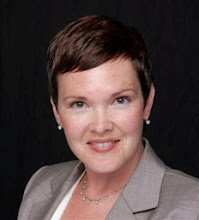Five Steps to a Profitable Coaching Business
The primary revelation to any coach unlocking their financial potential is to first recognize that coaching is still an anomaly to most people. Therapy is widely understood, although still taboo in some circles. Mentoring is welcomed and expected to be free of charge. Consultants are well-paid professionals with expertise in a particular area and highly sought. Coaches… well, they have more education to offer before they achieve wide recognition and more lucrative contracts.
Coaches who choose to start and run their own business suffer the same challenges that other experts and professionals do, they don’t typically have an M.B.A. They haven’t been serial entrepreneurs. They aren’t versed in contract negotiation and business management basics. The majority are good or great coaches and mediocre business owners. The good news is that coaches tend to be ready for a good challenge. They are creative, resilient, and fast learners.
There are five basic steps to facilitate a coach becoming more profitable. These steps can be addressed in tandem.
Step 1: Educating Others. Coaches must perfect their “commercials” to all audiences, potential clients and potential leads to clients, and address what they do, how they do it, what the benefits are, and why they are the best person for the job. Coaches must ensure they have the credentials, background, experiences and ability to perform their duties with positive results. Then, they must be able to share that experience verbally with prospects and groups that are helping them build your business.
Step 2: Network. As a sole proprietor, or small business owner, a coach must develop a trusted network of other business professionals who can serve as their sales team. Relationships take time. Quality relationships can be a vital part of a coaching businesses’ growth over the next year. One of my own networks generated 64% of my business in 2008- the first full year of my private practice. Many networks are formalized with exclusive memberships and weekly or monthly meetings. Referrals and leads are tracked and taken seriously by all involved parties. Other networks are informal and built over a longer time with trusted friends and professionals in your circle, city, client base, etc…
Step 3: Fast-Track M.B.A. Most coaches don’t have the time to commit to another intensive degree while building their coaching business. However, the business of business, so to speak, has to take center stage if they want to make coaching a profitable and successful part of their life. Most cities and online universities offer classes in contracts, simple accounting, governmental opportunities, etc… The Small Business Administration (www.sba.gov) is a good place to start learning about successful business ownership. How will you determine your pricing? What contract will you have in place to ensure a clear understanding of expectations, deliverables, secure payments, schedules and timelines, etc….? Coaches should also consider developing a team of professionals to assist them in the management of their business: accountants, financial advisors, attorneys, sub-contractors with various expertise, etc… Research and hire them early on. The earlier they are involved the better your business will be prepared to succeed.
Step 4: Embrace Feedback. As the clients’ needs change a coach too should be ready to evolve and deliver. Understand their offerings and be willing to make adjustments as necessary to provide the services people need. If a town is undergoing an economic hardship or industry layoffs it may be wise to take additional training in career development and mapping, gain further understanding of seniors re-entering the workforce, and/or stand ready to address cultural shifts. Great coaches are hired and retained because of their trusted role in a person or company’s life. Their talents often reach much further than one area of expertise. Showing diversity and continual education to serve a client base and acquire new clients is a very attractive feature of any business.
Step 5: Deliver Excellence. Treat every contact as a million-dollar one. Every client is the first and most important. Every person that the coach comes in contact with has the potential to become a raving fan. Raving fans produce more clients, thus more opportunities to produce raving fans. Businesses may be opened overnight but they build successfully overtime with loyal clients who sing a coaches praise at every turn. One dissatisfied client or company can set a business back years in reputation, track record of excellence and financially. If a coach agrees to take a contract at a price they can’t live with, they have no one but themselves to blame. They still must deliver as though it was their highest-paid contact with their best client. Their reputation and business is on the line.
These five steps will allow a coach to develop their coaching practice while recognizing that coaching is a business similar to many others and requires strong management to be profitable. As a coach, their role is clear. As a professional coach in business to be profitable, their role has just been amplified to include multiple other hats. With creativity, perseverance, and their keen interest and ability to learn, they’ll find the right fit as they complete these steps.
Wednesday, March 16, 2011
Subscribe to:
Post Comments (Atom)





No comments:
Post a Comment